广州版英语六年级上册教材
- 格式:doc
- 大小:36.41 MB
- 文档页数:167
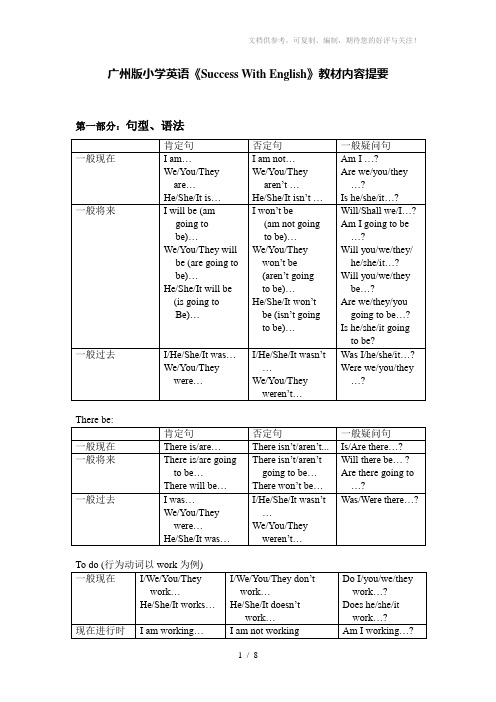
广州版小学英语《Success With English》教材内容提要第一部分:句型、语法1.读下面的特殊疑问式的句子,你能总结一些特殊疑问句的构成的规律吗?I.Who lives there.Who is singing in the room?Who was at home yesterday?II.What does he do?What is he doing?What did they do?When does he usually get up?When did she have dinner yesterday?Where is he now?Where are they planting trees?Where did they play football?How is your mother?How is he coming?How did they get there?Why does he go there?Why did she go there?III.Whose book is this?Whose parents are coming here?Which book is yours?Which presents did he give you?2. 关于形容词、副词的比较级和最高级(1) 你知道形容词、副词的比较级和最高级构成的一些规律吗?A. 一般情况下加-er, -est:long – longer, longest; small – smaller, smallestB. 重读闭音节,双写最后一个字母再加-er, -est:big – bigger, biggest; hot – hotter, hottestC. 辅音字母加y,改作后一个字母y为i再加-er, -est:funny – funnier, funniest, lucky – luckier, luckiestD. 部分双音节和多音节词,加more, most:slowly – more slowly, most slowly; more delicious, most deliciousE. 不规则变化:good – better, best; bad – worse, worst(2) 你知道形容词、副词的比较级和最高级句子的构成吗?A. This book is newer than that one.The English book is the newest of the three.Mike runs faster than John.Mike runs fastest in his class.B. This flower is more beautiful than that one.This tree is the oldest in the park.The girl is swimming better than the girl.Jim swims best in his group.C. Snakes are more dangerous than frogs.The meeting is the most important.The old man walks more slowly the young man.Kate jumps highest in her class.D. Tim has more books than Jim.Tim has the most stamps in his class.3. 关于代词some-, any-, no-, every-:(1) some- 多用在肯定句表示请求得到某些东西的句子:Someone will come here.Would you like something to eat.(2) any- 多用于疑问句或否定句:Is there anything in the box?We don’t want to see anyone of them?(3) no- 是事实的否定:There is nothing in the room.Nobody can do that.(4) 代词some-, any-, no-, every- 语法上看成是第三人称单数:There is something in the bottle.Everyone likes it.表1:小学教材各话题板块涉及的主要内容表2:小学教材话题分配表2:小学教材动词分类日常作息:wake up get up get dressed wash the face brush the teeth have breakfast go to school go to workhave lessons have lunch take a rest play sportstake exercises go (back) home have dinner do homeworkhave a bath go to bed sleep eat drinkcook娱乐休闲:have a party have a picnic do some reading do shopping go shopping go boating go swimming go sightseeinggo fishing go traveling go on a river cruise go to the circusgo to the flower show go to the cinema go to a football matchwatch a football match on TV come to tea see a filmwatch the birds listen to music / the radio watch TVclimb the mountain play cards e-mail a friend write a lettervisit a friend / Beijing meet a friend爱好与特长:sing draw paint play the piano / the guitar do well in …make a ship model play cards play chess体育运动:run swim skip rope swim play basketball play football play table tennis play tennis play badminton do weight-lifting家务:water the flowers do gardening plant trees / flowers clean the house sweep the floor wash the dishes cook wash the car wash clothes feed the pet学习:read listen speak write study learn practice hand in the homework borrow a book return a book catch up with teach mark the homework prepare the lessons tell a story心理和情感活动:want love enjoy like dislike love prefer hope wish agree with think dream feel sad /happy /excited /boredworry身体健康:take exercise see a doctor take the medicine go on a diet have a cold / fever / toothache / headache feel tired /hot /cold /ill /sickeat drink感官动词:listen to hear look at see watchfeel hot / cold /tired sound interesting / different / greatlook young / tall / beautiful /fresh /good种植活动:grow / plant a tree grow / plant flowers water the flowers dig a hole fill in the earth pick up the fruit appear位置移动:leave leave for start for move bring take climb run walk swim jump fly sit down standup throw … at …travel go comeget to…get out of…get down fall fall over与职业有关的动词:work put out fires clean up everything deliver letterscatch criminals serve food and drinks help in a shopdrive a taxi / an ambulance check your teeth help us to learnhelp sick people与“说”有关的动词:say speak talk tell与“看”有关的动作:look look at look for watch see其它动词:last begin start end finish bite blow blow out buy call carry catch change check close open count cost cover crash cut decorate free change give grow / grow up help invite get wet kill keep look for make need put on put out show turn wait for run into crash into weighhavehave a rest have a bath have a cold have a good time have been to… have a look have fun have totaketake a message take a rest take medicine take exercise take photos take a bus take me to the flower show take the third left I’ll take it.playplay computer games play cards play basketball play musical instrumentsplay the piano。
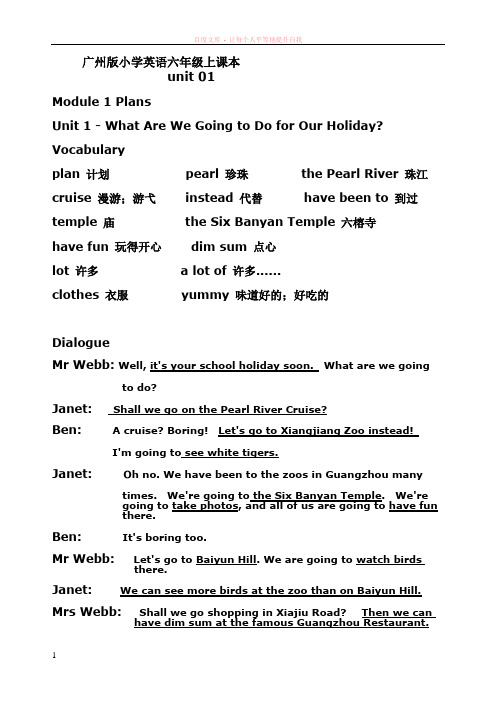
广州版小学英语六年级上课本unit 01Module 1 PlansUnit 1 - What Are We Going to Do for Our Holiday? Vocabularyplan 计划pearl 珍珠the Pearl River 珠江cruise 漫游;游弋instead 代替have been to 到过temple 庙the Six Banyan Temple 六榕寺have fun 玩得开心dim sum 点心lot 许多 a lot of 许多......clothes 衣服yummy 味道好的;好吃的DialogueMr Webb: Well, it's your school holiday soon. What are we going to do?Janet: Shall we go on the Pearl River Cruise?Ben: A cruise? Boring! Let's go to Xiangjiang Zoo instead!I'm going to see white tigers.Janet: Oh no. We have been to the zoos in Guangzhou many times. We're going to the Six Banyan Temple. We'regoing to take photos, and all of us are going to have funthere.Ben: It's boring too.Mr Webb:Let's go to Baiyun Hill. We are going to watch birdsthere.Janet: We can see more birds at the zoo than on Baiyun Hill. Mrs Webb:Shall we go shopping in Xiajiu Road? Then we can have dim sum at the famous Guangzhou Restaurant.Janet:Good idea! I want to buy some new clothes. There area lot of beautiful clothes there.Ben:Great! I like Guangdong dim sum. Yummy, yummy!unit 02Unit 2 What Shall We Do?go fishing 去钓鱼love 爱stupid 愚蠢的on 上演tonight 今晚;在今晚king 国王DialogueJanet: What are you going to do on Thursday morning, Xiaoling? Xiaoling: Mmm...let me see. I'm not going to do anything. Why? Janet: My family are going fishing. Would you like to go with us? Xiaoling: I'd love to, thanks a lot. When are you going to start? Janet: We are going to leave our house at half past eight. Why don't you come to our house at twenty past eight? Xiaoling:Great! I'll see you then! 到时候见!Jiamin: Are you going to watch the footfall game on TVtomorrow evening, Ben?Ben:Yes, we are. I'm going to watch it together with Mike and Yongxian.Jiamin: My family are watching a stupid film when the football game is on. So I can't watch it.Ben: Why don't you come to my house to watch it? We're going to have dinner before the game. You can eat with us too. Jiamin: Thanks. Ben. I'll ask my parents.Xiaolin: Janet, do you want to play table tennis with me tonight? Janet: I'm sorry, I can't. I'm going to do my homework. Xiaoling: What about tomorrow night?Janet: I'm sorry, I can't. I'm going swimming with my parents. Xiaoling: What about Saturday night?Janet: To tell you the truth, I don't like playing table tennis. I'm going to the cinema with Ben tonight! 去看电影Sally: What film are you going to see?Janet: The Lion King.Sally: Can I go with you?Janet: Yes, of course. But you'd better ask your parents first.unit 04Module Two CITIESUnit Four - I Know This City!flag 旗national 国家的;民族的national flag 国旗capital 首都Italian 意大利的;意大利语;意大利人Italy 意大利Rome 罗马Paris 巴黎America 美国;美洲Washington D.C. 华盛顿哥伦比亚区New York 纽约excellent 极好的;优秀Tokyo 东京Wellington 惠灵顿Sydney 悉尼Canberra 堪培拉prefer to 宁愿,更喜欢fantastic [fæn'tæstɪk] adj. 奇异的;极好的;不可思议的DialogueLook and listen. Then read and act扮演in groups.分小组Mr Chen:Boys and girls同学们, look at this flag please. Whatnational flag is it?Ben: Easy! It's the Chinese national flag.Mr Chen: Good. What's the capital of China?Ben:That's easy too. The capital of China is Beijing.Mr Chen:Very good. Look at these three flags. What national flags are they?Janet:That's the national flag of the UK英国. The capital of the UK is London.Xiaoling: That is the Italian national flag.Mr Chen: What's the capital city of Italy, do you know? Yongxian: I know, Mr Chen. It's Rome.Janet: And that's the French national flag. The capital of France is Paris.Mr Chen:Excellent! 太棒子!What about this one?Jiamin: That's the American national flag. New York is the capital of America.Sally: No. The capital of the USA is Washington D.C..New York is the biggest city of the USA.Mr Chen:Fantastic! 了不起!Look at this flag. What flag is it, Janet?Janet: It's the national flag of Australia?Mr Chen: What's the capital of Australia?Janet: Sydney.Mr Chen: No. Sydney is the largest city of Australia. Thecapital of Australia is Canberra.unit 05Unit 5 Where Would They Like to Go On Holiday?maybe 可能noisy 吵闹的crowded 拥挤的quiet 安静的just 仅仅;正;恰好;刚Moscow 莫斯科Russia 俄罗斯Berlin 柏林the Great Wall 长城mountain 山;山脉population 人口million 百万DialogueMr Webb: Children, where would you like to go on holiday (去度假)this summer?Ben:I'd like to go to Japan.Mrs Webb: Tokyo. Yes, Tokyo is a good place to visit. 东京是一个旅游的好地方。
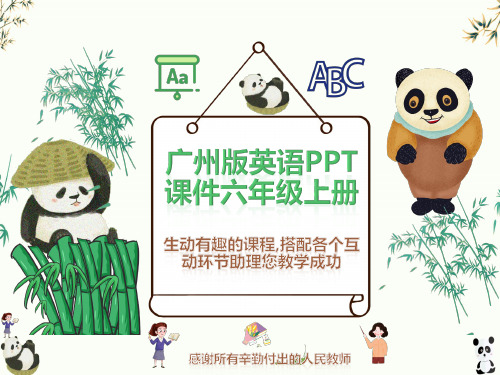
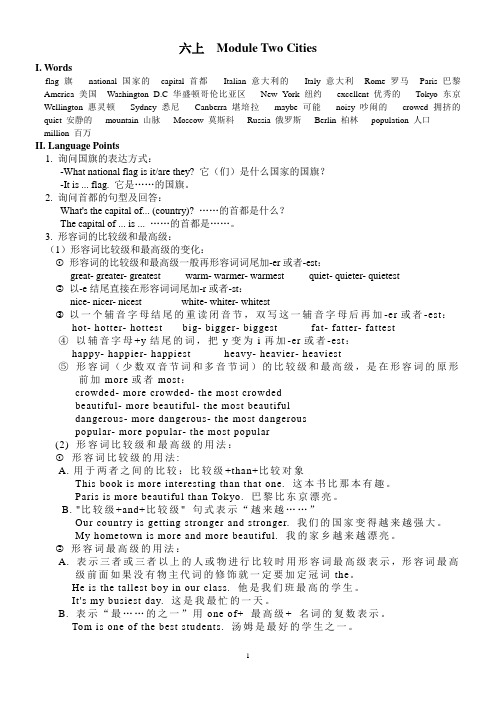
六上Module Two CitiesI. W ordsflag 旗national 国家的capital 首都Italian 意大利的Italy 意大利Rome 罗马Paris 巴黎America 美国Washington D.C 华盛顿哥伦比亚区New Y ork 纽约excellent 优秀的Tokyo 东京Wellington 惠灵顿Sydney 悉尼Canberra 堪培拉maybe 可能noisy 吵闹的crowed 拥挤的quiet 安静的mountain 山脉Moscow 莫斯科Russia 俄罗斯Berlin 柏林population 人口million 百万II. Language Points1. 询问国旗的表达方式:-What national flag is it/are they? 它(们)是什么国家的国旗?-It is ... flag. 它是……的国旗。
2. 询问首都的句型及回答:What's the capital of... (country)? ……的首都是什么?The capital of ... is ... ……的首都是……。
3. 形容词的比较级和最高级:(1)形容词比较级和最高级的变化:①形容词的比较级和最高级一般再形容词词尾加-er或者-est:great- greater- greatest warm- warmer- warmest quiet- quieter- quietest②以-e结尾直接在形容词词尾加-r或者-st:nice- nicer- nicest white- whiter- whitest③以一个辅音字母结尾的重读闭音节,双写这一辅音字母后再加-er或者-est:ho t- ho tter- hottest b ig- b igger- b ig gest fat- fatter- fattest④以辅音字母+y结尾的词,把y变为i再加-er或者-est:hap p y- hap p ier- hap p iest heavy- heavier- heaviest⑤形容词(少数双音节词和多音节词)的比较级和最高级,是在形容词的原形前加mo re或者mo st:cro wded- mo re cro wded- the mo st cro wdedb eautifu l- mo re beautiful- the mo st b eautifu ld angero us- mo re dangero us- the mo st d angero usp op ular- mo re po p ular- the mo st p op ular(2) 形容词比较级和最高级的用法:①形容词比较级的用法:A.用于两者之间的比较:比较级+than+比较对象This boo k is more interesting than that o ne.这本书比那本有趣。
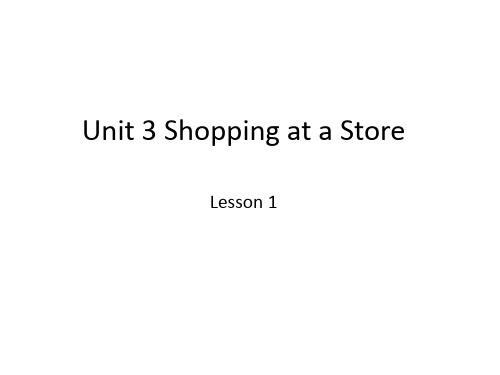
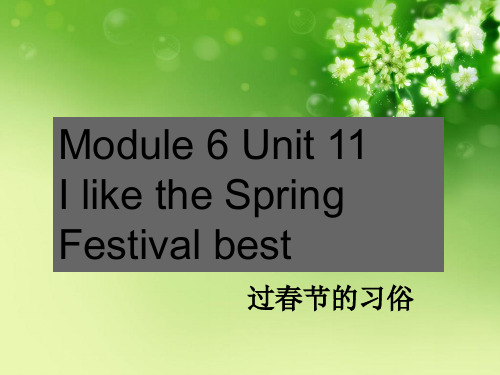
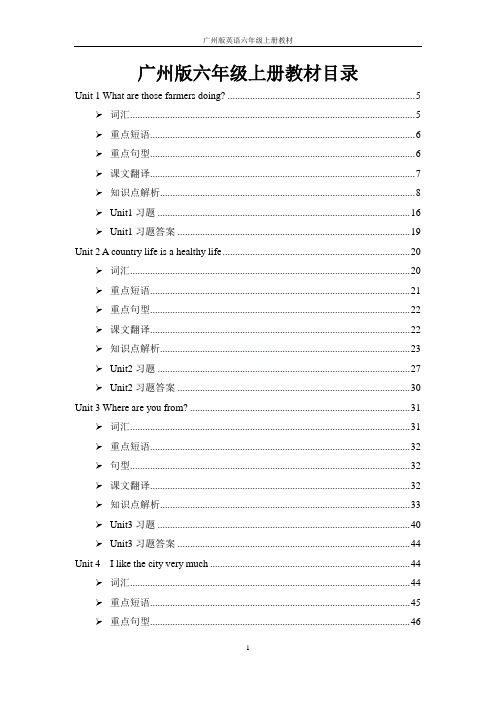
广州版六年级上册教材目录Unit 1 What are those farmers doing? (5)➢词汇 (5)➢重点短语 (6)➢重点句型 (6)➢课文翻译 (7)➢知识点解析 (8)➢Unit1习题 (16)➢Unit1习题答案 (19)Unit 2 A country life is a healthy life (20)➢词汇 (20)➢重点短语 (21)➢重点句型 (22)➢课文翻译 (22)➢知识点解析 (23)➢Unit2习题 (27)➢Unit2习题答案 (30)Unit 3 Where are you from? (31)➢词汇 (31)➢重点短语 (32)➢句型 (32)➢课文翻译 (32)➢知识点解析 (33)➢Unit3习题 (40)➢Unit3习题答案 (44)Unit 4 I like the city very much (44)➢词汇 (44)➢重点短语 (45)➢重点句型 (46)➢知识点解析 (47)➢Unit4习题 (51)➢Unit4习题答案 (54)Unit 5 What’s the matter with you? (55)➢词汇 (55)➢重点短语 (56)➢重点句型 (57)➢课文翻译 (57)➢知识点解析 (58)➢Unit5习题 (67)➢Unit5习题答案 (70)Unit 6 The secret to good health (71)➢词汇 (71)➢重点词组 (71)➢重点句型 (72)➢课文翻译 (72)➢知识点解析 (73)➢Unit6习题 (83)➢Unit6习题答案 (86)Unit 7 What did you do yesterday? (88)➢词汇 (88)➢重点语法 (88)➢重点句型 (89)➢课文翻译 (89)➢知识点解析 (90)➢重点语法:一般过去时 (90)➢Unit7习题 (97)➢Unit7习题答案 (101)Unit 8 A trip to Hong Kong (102)➢重点短语 (102)➢重点句型 (103)➢课文翻译 (103)➢知识点解析 (103)➢重点语法:一般过去时 (110)➢Unit8习题 (114)➢Unit8习题答案 (118)Unit 9 Was I a good girl back then? (119)➢词汇 (119)➢重点短语 (119)➢重点句型 (120)➢课文翻译 (120)➢知识点解析 (120)➢重点语法:一般过去时 (123)➢Unit9习题 (125)➢Unit9习题答案 (128)Unit 10 Then and now (129)➢词汇 (129)➢重点短语 (129)➢重点句型 (129)➢课文翻译 (130)➢知识点解析 (130)➢Unit10习题 (137)➢Unit10习题答案 (140)Unit 11 I like the Spring Festival best (141)词汇 (141)➢重点短语 (141)➢重点句型 (142)➢知识点解析 (143)➢Unit11习题 (149)➢Unit11习题答案 (153)Unit 12 Christmas (155)➢词汇 (155)➢重点句型 (155)➢课文翻译 (155)➢知识点解析 (156)➢Unit12习题 (162)➢Unit12习题答案 (165)Unit 1 What are those farmers doing? ➢词汇➢重点短语feed the chickens and ducks 喂养鸡和鸭子feed the pigs 喂猪feed the horse 喂马grow flowers and vegetables 种花和蔬菜plant trees 种树cut grass 割草any other 任何一个on the farm 在农场里milk the cow 挤奶➢重点句型1.What are those farmers doing? They’re cutting grass to feed the animals.2.What do you grow on your farm?3.We have a few goats and pigs.4.There are fruit trees in this field.5.There is a cow on the farm.➢课文翻译Ben: What do you grow on your farm, Uncle Chen?Uncle Chen: So many things. There are fruit trees in this field. You can pick some apples or oranges from the trees if you want. They are delicious. And in that field we grow rice. Ben: What are those farmers doing?Uncle Chen: They are cutting grass to feed other animals. We give it to the cows and sheep.Ben: Do you have any other animals on the farm?Uncle Chen: Oh yes. We have a few goats and pigs. And we also have some geese. Ben: I see them on the river. They look lovely.Ben:陈叔叔,你在农场种什么?Uncle Chen:种很多的东西。

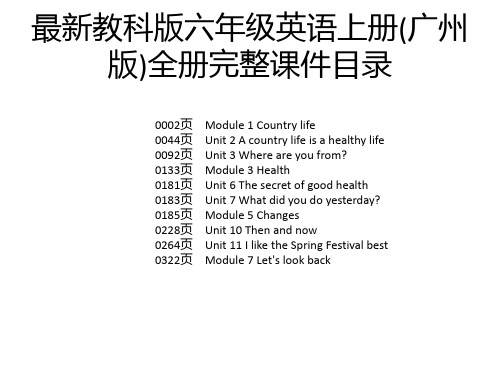

广州版六年级英语上册PPT课件《Christmas》MP3音频课件文件内包含本课教学使用的MP3音频文件,非常适用于本课教学。
关键词:广州版六年级上册英语MP3音频课件免费下载,《Christmas》音频下载,.mp3格式;...•《Christmas》PPT课件第一部分内容:圣诞节的由来 The wordChristmasis a bination of the words ChristandMass。
Christmas这个词是基督和弥撒的缩写,弥撒是教会的一种礼拜仪式。
耶诞节是一个宗教节日,世人把它当作耶稣的诞辰来庆祝,因而又名耶诞节...•《Christmas》PPT 第一部分内容:Lets listen and say.1、Christmas Day falls on 25December.People put up a Christmas tree in their home. They put presents for family and friends under the Christmas tree. 圣诞节在每年的12月25. 人们在家里装饰...•《I like the Spring Festival best》PPT课件第一部分内容:Lets guess . Jiamin had a wondeful Spring Festival last year. Guess what he did during the last Spring Festival? Maybe he ... Lets talk . A: What did Jiamin do during the last Spring...•《I like the Spring Festival best》PPT 第一部分内容:Brainstorm What festivals do you know? Dragon Boat Festival dragon boat races the Spring Festival Chongyang Festival Mid-autumn Festival ... ... ... 《I like the Spring Festival best》PP...•《Then and now》MP3音频课件文件内包含本课教学使用的MP3音频文件,非常适用于本课教学。

Unit1 What are those farmers doing? What do you grow on your farm,Uncle Chen? So So many many many things.There things.There things.There are are are fruit fruit fruit trees trees trees in in in this this this field.You field.You field.You can can can pick pick some some apples apples apples or or or oranges oranges oranges from from from the the the trees trees trees if if if you you you want.They want.They want.They are are delicious.And in that field we grow rice. What are those farmers doing? They They are are are cu ng cu ng cu ng grass grass grass to to to feed feed feed the the the animals.We animals.We animals.We give give give it it it to to to the the cows and sheep. Do you have any other animals on the farm? Oh yes.We have a few goats and pigs.And we also have some geese. I see them on the river.They look lovely. Unit2 A country life is a healthy life Hi.My name is Li Wei.I am eleven years old and I live on a small farm farm with with with my my my mum,dad mum,dad mum,dad and and and grandparents.I grandparents.I grandparents.I love love love living living living in in in the the country,but country,but I I ’m m usually usually usually very very very busy.Every busy.Every busy.Every day day day I I I wake wake wake up up up 5 5 5 a.m. a.m. and and help help help my my my father father father milk milk milk the the the cows.We cows.We have have more more more than than than 50 50 cows,so cows,so I I I always always always have have have plenty plenty plenty of of of fresh fresh fresh milk milk milk for for for breakfast.A er breakfast.A er breakfast I ride my bike to school.It takes about 40 minutes.My school is very small.There are 48 pupils and only one classroom.We classroom.We must must must all all all learn learn learn together.When together.When I I get get get home home home a er a er school,there is s ll much work to do.A er I finish my homework,I feed our chickens and help my parents with other housework.I housework.I am am am always always always busy busy busy but but but I I I never never never feel feel feel red,because red,because red,because I I have plenty of exercise,clean air and fresh food every day.So I think a country life is a healthy life. Unit3 Where are you from? Children.We have a new student in our class.This is David. Hi,David.Where are you from? I ’m from New Youk City in America.I was born there. Do you like living in our city? Oh,yes.It Oh,yes.It is is small but quiet.The quiet.The streets streets streets are are very clean and the people are nice.Things here are cheap,too. What What’’s New York like? It It’’s big big and and and modern modern modern city city city but but but it it it’’s s quite quite quite noisy.And noisy.And noisy.And everything everything everything is is very expensive in New York. Unit4 I like the city very much Dear Lily, My holiday holiday in in the city is very interes ng.It is very different different to to our our home home home on on on the the the farm.In farm.In farm.In the the the city,there city,there city,there are are are so so so many many many cars.The cars.The traffic is very heavy and the streets are crowded and dirty.Some mes dirty.Some mes I I am am afraid afraid afraid to to to go go go outside.And outside.And outside.And It It is very very noisy noisy too.At too.At night,I night,I night,I can can can’’t t go go go to to to sleep sleep sleep because because because there there there are are are too too too many many cars.But cars.But there there there are are are many many many nice nice nice things things things here here here too.There too.There too.There are are are many many supermarkets supermarkets here here here and and and they they they sell sell sell lots lots lots of of of different different different things.There things.There are also many beau ful modern buildings.There is much more to do in the city than in the countryside.At home we have only one one shop shop shop and and and one one one cinema,but cinema,but cinema,but in in in this this this city city city there there there are are are many many theatres and parks.I can play all day.I like the city very much but I really miss you and the farm.I can ’t wait to get back home and see all my friends. Love, Li Wei Unit5 What ’s the ma er with you? Jiamin.You don Jiamin.You don’’t look well.What’s the ma er with you? I feel ill.I have a stomachache.Maybe I ate some bad food. I ’m sorry to hear that.You should see a doctor. I did.I went to the hospital this morning.I stayed there for two hours. And what did the doctor say? He He gave gave gave me me me a a a check-up check-up check-up and and and asked asked asked me me me to to to take take take this this this medicine medicine three mes a day for one week. You should be careful,Jiamin.Your health is very important. I think you ’ll be well soon. Thank you. Unit6 The secret to good health Mr Li is not a doctor or a nurse,but he knows the secret to good health.He is 80 years old but looks only 60.He says you can do some some simple simple simple things things things to to to stay stay stay healthy.First,get healthy.First,get healthy.First,get plenty plenty plenty of of of sleep,at sleep,at least least 8 8 8 hours hours hours each each each night,so night,so night,so you you you will will will feel feel feel good good good for for for the the the next next day.Second,keep a a good good good diet.Eat diet.Eat more more vegetables vegetables and and less less meat.Don meat.Don’’t eat eat too too too much much much sweet sweet sweet or or oily food.And food.And drink drink drink tea tea tea or or water,not coke coke or or or coffee.Third,take coffee.Third,take plenty plenty of of of exercise.Mr exercise.Mr Li walks for one hour in the park every morning and some mes dances dances with with with his his his friends friends friends there.Finally,Mr there.Finally,Mr Li Li thinks thinks thinks the the the most most important important thing thing thing for for for a a a healthy healthy healthy life life life is is is to to to be be be happy.He happy.He never worries worries too too too much much much and and and always always always has has has a a a smile smile smile on on on his his his face.That face.That ’s why,even at 80,his hair is s ll black and not white. Unit7 what did you do yesterday? Yestoday was Children ’s Day.Tell me,children,what did you do? I went shopping with my mother.I bought a new pair of sports shoes.Do you like them? They look great.I played basketball at the park.It was so much fun.But my mum was angry because I came home late. And you Ben?Where did you go yestoday? I stayed at home all day.In the morning I cleaned my room and in the a ernoon I did my homework.It was no fun at all. Poor Ben! Unit8 A trip to Hong Kong Dear Diary, Last weakend my mother,Ben and I went on a trip to Hong Kong.We travelled there by train and stayed with my cousin.Ben said said he he he was was was very very very excited excited excited because because because it it it was was was his his his first first first visit visit visit to to to the the island.On our first day my cousin took us to Disneyland.We took a photo with Mickey Mouse and Donald Duck and played lots of different games. We had hamburgers and chips for lunch.I think I I ate ate ate a a li le li le too too too much much much because because because later later later I I I felt felt felt ill.Ben ill.Ben ill.Ben sat sat sat with with with me me un l I felt be er.He was so kind.The next day we went shopping.When we were on the street,we met Xiaoling and her mum.I was very surprised because I didn ’t know they came to Hong Hong Kong,too.We Kong,too.We Kong,too.We all all all had had had lunch lunch lunch together together together and and and talk talk talk about about about our our trip. Unit9 Was I a good girl back then? Mum,who is that in the picture? That That’s you,when you were ’s you,when you were five years old. Really?My hair was very long then,wasn ’t it? Yes,it Yes,it was.Before,you was.Before,you was.Before,you liked liked liked long long long hair hair hair very very very much,but much,but much,but now now now you you always keep it short. Was I a good girl back then? Oh yes,a very good girl.When you were five,you were quiet and very polite.But now …But now?But now I am s ll very good!! Unit10 Then and now Three years ago,Ben came to live in China with his parents.Before then,he then,he lived lived in in England England England and and and life life was very different. When When he he he was was was in in in England,Ben England,Ben England,Ben lived lived lived in in in a a a small small small village village village in in in the the countryside.It countryside.It had had had only only only two two two shops shops shops and and and most most most of of of the the the people people worked on farms.Ben ’s village school was very small too.There were were only only only 150 150 150 pupils.His pupils.His pupils.His home home home was was was nearby nearby nearby so so so he he he walked walked walked to to school every day. But But now,Ben now,Ben now,Ben lives lives lives in in in a a a big big big city.The city.The city.The city city city has has has many many many people,cars people,cars and tall buildings.In the city,Ben goes to a very big school.It has more more than than than 1000 1000 1000 pupils.His pupils.His pupils.His home home home is is is far far far away,so away,so away,so every every every day day day he he takes takes the the the bus.On bus.On bus.On the the the bus,he bus,he bus,he sees sees sees people people people going going going to to to work work work in in modern office buildings and department stores. Ben loves the city.There are many things to do and he has lots of friends.But some mes he missed the quiet life of his English village. Unit11 I like the Spring Fes val best What is your favourite fes val,Xiaoling? I like the Spring Fes val best.It is so much fun. What do people do during the Spring Fes val? So many things.The Spring Fes val is the Chinese New Year,so people usually clean their houses and buy new clothes to make everything new and fresh. And do you give each other gi s? Children Children don don don’’t t give give give gi s,but gi s,but gi s,but parents parents parents will will will give give give their their their children children some lucky money.So we all love it. When is the Spring Fes val? Usually it is in January or February.We will go to visit our family and wish them a happy Spring Fes val.We will also have a big dinner with jiaozi and lots of other delicious food. It sounds great. Unit12 Christmas In In many many many countries,Christmas countries,Christmas countries,Christmas is is is the the the most most most important important important fes val fes val fes val of of the year.Christmas is always on December 25th,and before that day people will put up a large Christmas tree in their home.Under the Christmas tree they put many gi s for everyone to share.Children are always very excited at Christmas because because they they they can can can get get get many many many wonderful wonderful wonderful presents presents presents from from from Father Father Christmas.Father Christmas is a fat happy man in red clothes.He brings gi s to all the children.He comes to their home on the night before Christmas and puts their gi s under the tree or in a sock.Then sock.Then on on Christmas Christmas morning morning the children children hurry hurry to open their gi s.Families and friends come together on that day for a big Christmas lunch or dinner.They o en eat ham,potatoes and a a Christmas Christmas Christmas turkey.Everyone turkey.Everyone sings sings many many many wonderful wonderful wonderful Christmas Christmas songs.It really is a happy me. 。
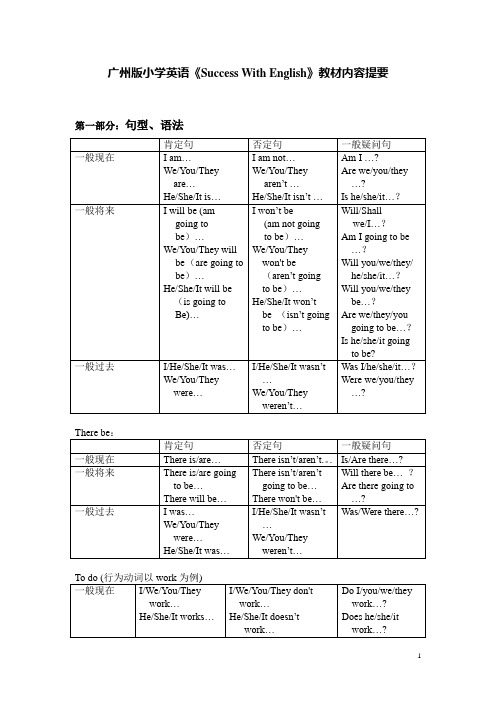
广州版小学英语《Success With English》教材内容提要第一部分:句型、语法1.读下面的特殊疑问式的句子,你能总结一些特殊疑问句的构成的规律吗?I.Who lives there。
Who is singing in the room?Who was at home yesterday?II。
What does he do?What is he doing?What did they do?When does he usually get up?When did she have dinner yesterday?Where is he now?Where are they planting trees?Where did they play football?How is your mother?How is he coming?How did they get there?Why does he go there?Why did she go there?III。
Whose book is this?Whose parents are coming here?Which book is yours?Which presents did he give you?2。
关于形容词、副词的比较级和最高级(1) 你知道形容词、副词的比较级和最高级构成的一些规律吗?A. 一般情况下加-er,-est:long – longer,longest;small – smaller, smallestB。
重读闭音节,双写最后一个字母再加-er,—est:big – bigger, biggest; hot – hotter,hottestC。
辅音字母加y,改作后一个字母y为i再加-er,-est:funny – funnier,funniest,lucky – luckier, luckiestD。
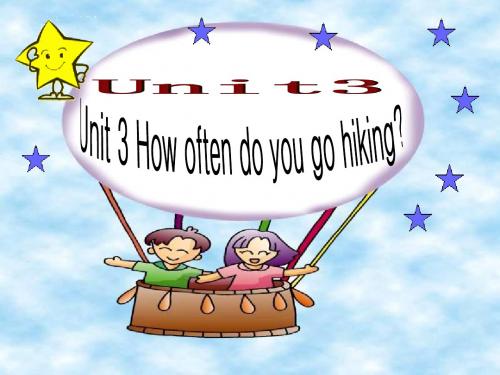

广州版六年级上册教材目录Unit 1 What are those farmers doing? (5)➢词汇 (5)➢重点短语 (5)➢重点句型 (6)➢课文翻译 (7)➢知识点解析 (8)➢Unit1习题 (16)➢Unit1习题答案 (19)Unit 2 A country life is a healthy life (20)➢词汇 (20)➢重点短语 (21)➢重点句型 (22)➢课文翻译 (22)➢知识点解析 (23)➢Unit2习题 (27)➢Unit2习题答案 (30)Unit 3 Where are you from? (31)➢词汇 (31)➢重点短语 (32)➢句型 (32)➢课文翻译 (32)➢知识点解析 (33)➢Unit3习题 (40)➢Unit3习题答案 (44)Unit 4 I like the city very much (44)➢词汇 (44)➢重点短语 (45)➢重点句型 (46)➢知识点解析 (47)➢Unit4习题 (51)➢Unit4习题答案 (54)Unit 5 What’s the matter with you? (55)➢词汇 (55)➢重点短语 (56)➢重点句型 (57)➢课文翻译 (57)➢知识点解析 (58)➢Unit5习题 (67)➢Unit5习题答案 (70)Unit 6 The secret to good health (71)➢词汇 (71)➢重点词组 (71)➢重点句型 (72)➢课文翻译 (72)➢知识点解析 (73)➢Unit6习题 (83)➢Unit6习题答案 (86)Unit 7 What did you do yesterday? (88)➢词汇 (88)➢重点语法 (89)➢重点句型 (89)➢课文翻译 (90)➢知识点解析 (90)➢重点语法:一般过去时 (91)➢Unit7习题 (97)➢Unit7习题答案 (101)Unit 8 A trip to Hong Kong (102)➢重点短语 (103)➢重点句型 (103)➢课文翻译 (103)➢知识点解析 (104)➢重点语法:一般过去时 (110)➢Unit8习题 (115)➢Unit8习题答案 (118)Unit 9 Was I a good girl back then? (119)➢词汇 (119)➢重点短语 (120)➢重点句型 (120)➢课文翻译 (120)➢知识点解析 (121)➢重点语法:一般过去时 (124)➢Unit9习题 (126)➢Unit9习题答案 (128)Unit 10 Then and now (129)➢词汇 (129)➢重点短语 (130)➢重点句型 (130)➢课文翻译 (130)➢知识点解析 (131)➢Unit10习题 (138)➢Unit10习题答案 (141)Unit 11 I like the Spring Festival best (142)词汇 (142)➢重点短语 (142)➢重点句型 (143)➢知识点解析 (144)➢Unit11习题 (150)➢Unit11习题答案 (154)Unit 12 Christmas (156)➢词汇 (156)➢重点句型 (156)➢课文翻译 (156)➢知识点解析 (157)➢Unit12习题 (163)➢Unit12习题答案 (166)Unit 1 What are those farmers doing? ➢词汇➢重点短语feed the chickens and ducks 喂养鸡和鸭子feed the pigs 喂猪feed the horse 喂马grow flowers and vegetables 种花和蔬菜plant trees 种树cut grass 割草any other 任何一个on the farm 在农场里milk the cow 挤奶➢重点句型1.What are those farmers doing? They’re cutting grass to feed the animals.2.What do you grow on your farm?3.We have a few goats and pigs.4.There are fruit trees in this field.5.There is a cow on the farm.➢课文翻译Ben: What do you grow on your farm, Uncle Chen?Uncle Chen: So many things. There are fruit trees in this field. You can pick some apples or oranges from the trees if you want. They are delicious. And in that field we grow rice. Ben: What are those farmers doing?Uncle Chen: They are cutting grass to feed other animals. We give it to the cows and sheep.Ben: Do you have any other animals on the farm?Uncle Chen: Oh yes. We have a few goats and pigs. And we also have some geese. Ben: I see them on the river. They look lovely.Ben:陈叔叔,你在农场种什么?Uncle Chen:种很多的东西。
这片田野里有果树。
如果你愿意,你可以从树上摘些苹果或桔子。
它们的味道真好!在那片土地上我们种水稻。
Ben:那些农民在干什么?Uncle Chen:他们割草喂其他动物。
我们把它给了牛和羊吃。
Ben:农场里还有其他的动物吗?Uncle Chen:是的。
我们有几只山羊和猪。
我们还有一些鹅。
Ben:我在河上看见他们了。
它们看起来很可爱。
➢知识点解析【知识点一】我们先来看一下本节课有哪些新单词及短语【知识点二】可数/不可数名词可数名词一般来说个体名词和集体名词可以用数目来计算,称为可数名词。
可数名词有单数和复数两种形式。
例如: a book, two books, a student, three students, a family, many families。
名词单数变复数变化如下:◆词尾直接加s如:cat——cats bag——bags day——days◆以s, sh, ch, x 结尾的词加es如:class——classes, match——matches ,box----- boxes, dish ---- dishes, bus --- buses, peach --- peaches .◆以辅音加y结尾的词变y为i加es. 元音加y 结尾的词直接加s,如: party----parties city----cities story----stories family---families baby --- babiesboy---- toys monkey----- monkeys key---- keys等.◆以f或fe结尾的词, 变f或fe 为v, 加es,如: wife ---- wives, half---- halves, shelf—shelves, knife --- knives, life---lives, leaf---leaves.注意特殊情况直接加“s”,要逐个记chiefs, handkerchiefs , roofs.◆以辅音加o 结尾的词:有生命的加es如: tomatoes, potatoes, heroes.无生命的如s,如::radios, zoos, pianos, photos◆名词单数变复数特殊变化也要逐个记得如: man-men, woman-women, policeman-policemen, tooth---teeth, foot---feet, child--children,mouse-mice,goose---geese.(注意:以下单复同形:deer, sheep, species, means, Chinese, Japanese)练一练:一、请写出下列词的复数形式。
1.tooth ___________2.deer___________ _3.boy____________4.bus______________5.man ___________6.woman ___________7.child __________ 8.watch_________ 9.diary____________10. sheep___________11.box___________ 12.people___________二、选择题。
( )1.The deer has four ______.A. footB. feetC. feetsD. foots( )2.Her two brothers are both ______.A. policemanB. policemansC. policemenD. policemens( )3.Two ______ would come to the village.A. woman-doctorsB. women doctorC. women doctorsD. woman doctors( )4.Can you see nine _____ in the picture?A. sheepB. dogC. pigD. horse( )5..I saw many _____ in the street.A. peoplesB. peopleC. people’sD. peoples’( )6.The boy often brushes his _____ before he goes to bed.A. toothB. toothsC. teethD. teeths( )7.Tom’s uncle has fifty on his farmA. sheepB.sheepsC.sheepes不可数名词不可数名词不能用数字计算包括物质名词( air, water等)及抽象名词(advice, hate)等。
所以它通常只有单数形式。
如:English, air, water, cotton, work…不可数名词的类别:食物:food ,salt, bread, rice, beef, meat, pork, butter(黄油),cream.液体:water, juice, milk, coffee, tea, coke, oil, wine.表示自然现象:snow, ice ,rain, air.其他类:money,homework, housework, time, music, weather注意事项:1.数量的表达方式不可数名词后面不可以加s, 前面不能直接加数字,不能用a或an,常用some,much,a little,a lot of,plenty of表示多少。